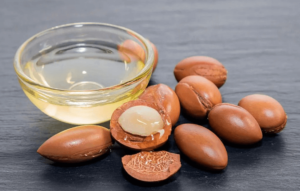Sweet Potatoes: Golden Jewel of Nutrition

Sweet potatoes, scientifically known as Ipomoea batatas, are native to Central and South America. They belong to the Convolvulaceae family and are cultivated worldwide. With their natural sweetness and rich texture, sweet potatoes have found their way into various cuisines across the globe.
What sets sweet potatoes apart is their impressive nutrient content. They are an excellent source of vitamins, minerals, fiber, and antioxidants, making them a highly nutritious addition to any diet. The wide range of health benefits associated with sweet potatoes has contributed to their increasing popularity among health-conscious individuals.
Furthermore, sweet potatoes are incredibly versatile and can be enjoyed in numerous ways. Whether roasted, mashed, baked, or incorporated into soups and salads, their unique flavors and textures add depth and complexity to dishes.
In the following sections, we will delve into the nutritional profile of sweet potatoes, uncover their potential health benefits, explore the different varieties and their distinctive flesh colors, and provide creative ideas on how to incorporate them into your daily meals.
Nutritional Profile of Sweet Potatoes
Sweet potatoes are not only delicious but also packed with essential nutrients that contribute to their impressive health benefits. Let’s take a closer look at their nutritional profile:
1. Macronutrients
2. Vitamins
3. Minerals
4. Antioxidants
Sweet potatoes are packed with antioxidants, including beta-carotene, anthocyanins, and other Polyphenols. These antioxidants help neutralize harmful free radicals, protecting the body against Oxidative Stress and reducing the risk of chronic diseases.
5. Other nutrients
Sweet potatoes also provide small amounts of other essential nutrients, including copper, iron, calcium, and zinc, which play vital roles in various bodily functions.
Health Benefits of Sweet Potatoes
Sweet potatoes offer a myriad of health benefits due to their rich nutrient content. Let’s explore some of the key advantages associated with consuming sweet potatoes:
1. Support Digestive Health
With their significant fiber content, sweet potatoes promote healthy digestion. Fiber adds bulk to the stool, supports regular bowel movements, and nourishes the beneficial bacteria in the gut, contributing to a healthy microbiome.
2. Promote Healthy Vision
The high levels of beta-carotene in sweet potatoes are converted into vitamin A in the body, which is essential for maintaining healthy eyesight. Adequate intake of vitamin A is associated with a reduced risk of age-related macular degeneration and night blindness.
3. Aid in Weight Management
Sweet potatoes are a satisfying and nutrient-dense food that can support weight management. The combination of dietary fiber, complex carbohydrates, and a moderate calorie content helps promote feelings of fullness, reducing the likelihood of overeating and supporting weight maintenance.
4. Anti-Cancer Activity
The antioxidants and phytochemicals present in sweet potatoes have been linked to potential anticancer properties. These compounds help neutralize free radicals, prevent DNA damage, and inhibit the growth and spread of cancer cells.

5. Hepato-Protection
Sweet potatoes contain compounds that promote liver health and protect against oxidative stress. These properties contribute to the overall well-being of the liver and its vital functions, such as detoxification and metabolism.
6. Antidiabetic Activity
Sweet potatoes have a low glycemic index and contain beneficial compounds that may help regulate blood sugar levels. This makes them a suitable food choice for individuals with diabetes or those aiming to manage their blood sugar levels.
By incorporating sweet potatoes into your diet, you can enjoy these remarkable health benefits and support your overall well-being.
Sweet Potato Varieties and Their Distinctive Flesh Colors
Sweet potatoes come in various varieties, each with its own unique characteristics and flesh colors. While orange-fleshed sweet potatoes are the most common and widely available, there are other interesting varieties to explore:
Each sweet potato variety offers its own set of nutrients and flavors, allowing you to experiment with different colors and tastes in your recipes.
Different Ways To Incorporate Sweet Potatoes Into Your Diet
Sweet potatoes are incredibly versatile and can be enjoyed in various delicious ways. Here are some ideas for incorporating sweet potatoes into your diet:
These are just a few examples, but feel free to get creative and explore different recipes and cooking methods to enjoy the versatility of sweet potatoes in your meals.
Takeaway
Sweet potatoes are not only delicious but also incredibly nutritious. They are rich in vitamins, minerals, fiber, and antioxidants, offering a wide range of health benefits. Incorporating sweet potatoes into your diet can support digestive health, promote healthy vision, aid in weight management, potentially have anti-cancer properties, protect the liver, and help regulate blood sugar levels. Additionally, sweet potatoes come in various varieties with distinctive flesh colors, each offering its own set of nutrients and flavors. Whether you enjoy them baked, as fries, mashed, in soups, smoothies, or pancakes, there are numerous creative ways to incorporate sweet potatoes into your daily meals and enjoy their versatility.






